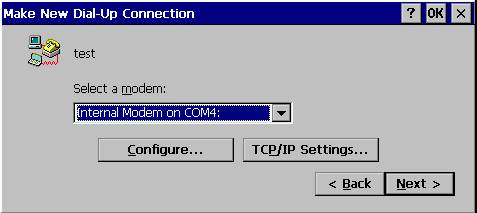How to peek into the counterparty
For some reason, checking a counterparty is perceived by many as a panacea. Although a considerable number of small business representatives do not even bother with this, and in general, not very many problems. Because often the decision to enter or not enter the transaction is made according to informal criteria: dating, the word patsanskoe, intuition, etc.
Actually, I do not see anything wrong with that. It works, and any verification requires not only resources, but often leads to distrust, which translates into additional requirements for the other side, harsh editing of contracts and so on. What sometimes means just a lost client. Some easier such "excesses" to lay in the business model and do not delve into the papers. Losses will still be, there will be defaulters. This is an entrepreneurial activity, because its very definition means that it is an activity carried out at your own risk.
But sometimes verification is still useful. For example, when you have an impersonal stream of not the smallest customers who came from the side. Or when a major contract is planned, problems with which can seriously shake your company. For such cases, this article is written so that without a lawyer it would be possible to reduce risks at least a little.
')

One of the most widespread myths is that you can conduct some kind of total verification (the current due diligence word, shoved to the place and out of place), and get a full guarantee of the security of the transaction. No that's not true. 100% does not happen. But it comes close to that. Let me tell you how this happens, because I had the displeasure of being involved. And you will immediately begin to appear in your head thoughts about all sorts of golden means, reasonable measures, and so on.
So, a contract is concluded with a large consulting firm that has experience in your particular field. The size here is very important, because a whole team of employees or outside experts will work on checking your transaction. In one such transaction (sale of the object under construction) I had to collect documents and write answers to the requests of consultants. I was ready to hang myself. There was a separate team of builders and financiers, a separate team of people in real estate, as well as lawyers in transactions and corporate affairs. The check lasted almost two months. I felt like a real archaeologist when I was digging up all sorts of trash. I sent another batch of scans and answers. A week later, following the results of the study, additional inquiries and questions came. And so on.

The cost of such a test is close to the cost of odnushki in Moscow. Was it a 100% guarantee? No, because judicial practice knows both challenging deals a decade ago, and generally changing the line of a party, when the law is rewritten inside out. But all the potential risks to the other side in any case were voiced. That very underside was turned inside out, and it was possible to think through insurance mechanisms.
So, if you want iron guarantees, and if you have money and time, then you can not read further. If you want to get at least some reassurance without registrations and SMS, then welcome to your blog.
There are exactly three reasons:
The main reason in our case is the second. The rest go locomotive and close themselves, even if you only had such a check on the tops. Why on top? Because there must always be a balance of resources. You can check for a very long time, but you can still be thrown. If you are building your business, then the main focus should be on business. The rest is an entrepreneurial risk that you cannot avoid. The task is only to reduce the percentage of the likelihood of bad consequences, but no more. This is what we will do.

We request constituent documents. We take as an example LLC - the most common form of legal entities in our country. You need:
There is such a thing as deal size. If the transaction amount is more than a quarter of the balance amount (the line is total in the accounts), and is not a normal business activity for the counterparty, then it must be approved either by the decision of the counterparty participant or the general meeting (if there are several participants). Otherwise, there is a possibility of challenging the conclusion of a contract on their part. To challenge the owners of the company in this case. It is clear that they will go to court only in the case of really large amounts, and when questions of the need for a contract for the counterparty (or an inflated price) raise doubts. Therefore, this is hardly your case, otherwise you probably already have a lawyer. But no one excludes the case of counterparty bankruptcy. Then a special person will act on his behalf - the arbitration manager, and in a bankruptcy transaction is much easier to dispute. It threatens you with a full refund of the funds received. In short, just a warning.

We go to the site tax . Check the details of the company. The name and address must coincide (be sure to check not by the counterparty card, but by the details of the contract).
If the site gives another company. Two options. Either by mistake they slipped another one of their offices (sometimes they are scattered for different tasks), or they were specially slipped. What for?
We look in the same name of the general. If there is any other person, then look at the date next to him. This is the date you recorded this person. Perhaps it was only recently changed, and out of habit, documents were sent to you on the old one. Or they simply plan to sign a contract with a back date (this is a risk, specify why they need it). Request documents for a new director and ask for clarification of the inconsistency. If nothing is sent or start to stir up, then I would not continue to continue. Perhaps the office is in the draining stage.
If the address does not match. Perhaps he changed. Either you put in the actual contract. Specify. You are interested in both company registrations - both legally and in fact.
And, well, yes, see if there is hanging information about the upcoming liquidation or expulsion from the Unified State Register of Legal Entities. And then you will not see the money.
Go to Fedresurs . The main site for the deathbed companies. You drive INN or OGRN and see if there are any reports of upcoming bankruptcies, reorganizations and so on.
We go to the site of the courts . In this case, arbitrazhniki (disputes between legal entities and SP). We drive in the name of the company. Then again we look for the TIN and OGRN separately. If a lot of ships, then see what their subject. And if the firm does not pay or does not work, then why do you need it?
Next to the bailiff . We repeat the procedure with the TIN and are looking for enforcement proceedings. If there is, then we look specifics. Lot? Do you have large debts?
And last but not least, reviews . And not so much about the company itself, how many reviews of employees. You can learn a lot of interesting things about the work processes of your counterparty, the style of his business and in general, the Russian realities ...

Thanks to our tax, which practically shattered honest taxpayers, and they no longer know what piece of paper to hide behind. But, the glory of the highest court, for the last couple of years, the vigorous imagination and the tax specialists' agility a little (and in some places even a lot) diminished.
Most of the problems arose due to the fact that some tenth Vasya in a long chain merged his company without paying VAT. It would seem, what does this have to do with you? But no, the tax believed that it was you who did not show prudence. Although you have a contract with Fedya, who, as you know, brought Sasha to a subcontract, but you don’t know by ear or spirit that there is more and Vasya thereafter.
So, now from such a hurry fiscal bodies can be repulsed. The Supreme Court said that your area of responsibility is only the choice of your counterpart directly, everything else should not concern you. Is it logical? It is logical, but for many years logic was unknown to our practice.
In the overwhelming majority of cases, for a diligent verification of the counterparty in order to get rid of the tax need (again for an LLC):
This is from the documents. If anything, you will have to show that they have a more or less balance (they have small losses, if you have them, but you personally are not the main client for them), they have already had similar orders (ask for a commercial offer), and You had a thorough correspondence (always save and do not delete).
Your unwillingness to deal with this, I understand. Tedious, dreary and often meaningless. Therefore:
Little afterwords
As a lawyer, I do not believe counterparties at all. This job. But as an ordinary person, one is more inclined to believe that there are more good people, so one should not be directly very much afraid of everything and everyone. As they say, “do it normally, it will be ok”. Be responsible and do not put all your eggs in one basket. In the end, you earn money not by checking counterparties, but by your skills, abilities and talents. Learn to separate the main and secondary!
Actually, I do not see anything wrong with that. It works, and any verification requires not only resources, but often leads to distrust, which translates into additional requirements for the other side, harsh editing of contracts and so on. What sometimes means just a lost client. Some easier such "excesses" to lay in the business model and do not delve into the papers. Losses will still be, there will be defaulters. This is an entrepreneurial activity, because its very definition means that it is an activity carried out at your own risk.
But sometimes verification is still useful. For example, when you have an impersonal stream of not the smallest customers who came from the side. Or when a major contract is planned, problems with which can seriously shake your company. For such cases, this article is written so that without a lawyer it would be possible to reduce risks at least a little.
')

Guarantees
One of the most widespread myths is that you can conduct some kind of total verification (the current due diligence word, shoved to the place and out of place), and get a full guarantee of the security of the transaction. No that's not true. 100% does not happen. But it comes close to that. Let me tell you how this happens, because I had the displeasure of being involved. And you will immediately begin to appear in your head thoughts about all sorts of golden means, reasonable measures, and so on.
So, a contract is concluded with a large consulting firm that has experience in your particular field. The size here is very important, because a whole team of employees or outside experts will work on checking your transaction. In one such transaction (sale of the object under construction) I had to collect documents and write answers to the requests of consultants. I was ready to hang myself. There was a separate team of builders and financiers, a separate team of people in real estate, as well as lawyers in transactions and corporate affairs. The check lasted almost two months. I felt like a real archaeologist when I was digging up all sorts of trash. I sent another batch of scans and answers. A week later, following the results of the study, additional inquiries and questions came. And so on.

The cost of such a test is close to the cost of odnushki in Moscow. Was it a 100% guarantee? No, because judicial practice knows both challenging deals a decade ago, and generally changing the line of a party, when the law is rewritten inside out. But all the potential risks to the other side in any case were voiced. That very underside was turned inside out, and it was possible to think through insurance mechanisms.
So, if you want iron guarantees, and if you have money and time, then you can not read further. If you want to get at least some reassurance without registrations and SMS, then welcome to your blog.
Why do you need to check counterparty
There are exactly three reasons:
- In order not to go to the tax office as to work, when she throws you with verification materials, that, they say, your counterparty is bald, and the deal is clearly left and so forth, and so on.
- To immediately weed out any suspicious trash.
- In the case of legal disputes on the transaction itself, to have evidence of its good faith (this is a rather important question - to confirm its adequacy and reasonableness).
The main reason in our case is the second. The rest go locomotive and close themselves, even if you only had such a check on the tops. Why on top? Because there must always be a balance of resources. You can check for a very long time, but you can still be thrown. If you are building your business, then the main focus should be on business. The rest is an entrepreneurial risk that you cannot avoid. The task is only to reduce the percentage of the likelihood of bad consequences, but no more. This is what we will do.
Let's specifics

Papers
We request constituent documents. We take as an example LLC - the most common form of legal entities in our country. You need:
- Charter There you see three things: firstly, the procedure for appointing the general director (appointment dates, for example), secondly, his terms of reference (if there are any restrictions), and thirdly, whether there are any special requirements for any transactions - their conduct or approval (for amounts, for example). Most of the charters usually consist of all sorts of garbage, so do not be alarmed and scroll right to the right sections. Usually they have headings like “Management in society”, “Sole executive body”, etc.
Accordingly, your task is to make sure that the general has the right to sign an agreement with you or authorize someone to sign it. - Decision or protocol on appointment of the general director. Not an order, as some like to send, but a decision or protocol. An order is an internal local act; it has nothing to do with business relations. In the case of the CEO, pure formality. The decision (this is when there is only one participant in the society) or protocol (when there are several participants) is the main document in authorizing the owners of a person to conduct business on behalf of this company. Because he does not need a power of attorney. His signature is the signature of the company.
- Power of attorney , if the contract with you will be signed by proxy. There, it’s necessary to check its validity period (whether it has expired), the authority of the general when he issued it (did he have the right under the statute and was he director at the time of issue), and whether the attorney himself has limitations (who will sign this contract), that is, for example, can sign a contract, but not more than for 100 000 rubles (and you have a contract for 150 000).
If after issuing a power of attorney the CEO has changed, then that's okay. The power of attorney continues to operate unless it has been specifically withdrawn. Because the power of attorney is issued not by the general, but by the firm. - Accounting reports . I am not a financier, but for my legal purposes I always look at a few things that are easy to find and weed out.
- Suspicious thing, if the firm seems to be like a big one or a large contract, and the reporting volume is small. This can mean both imitation of size, and the banal tax evasion, that is, money is allowed past the cash register. At any time the office can be drained and your money will fly into the void. And then there will be uncomfortable questions from the state.
- Next, we look and compare the lines of receivables and payables. If the second (the company should) greatly exceed the first (the companies should), then this is an occasion to think about financial risks. The company is clearly indebted. How long it will last is a question of the skill of management and the situation on the market.
- Well, to the heap, of course, we look whether there is a tax debt. If there is, then this is really very bad at least for the subsequent relationship with the tax.
Yes, in reporting you can find out a lot more, but I am not a financier, I remind you. At the same time, I’m not very worried because of this, because we remember that there should be a balance of resources, and any reporting can always be very beautifully drawn.
If you do not give statements
You can try to search here . If it is there, then it is not bad. The company is more or less trying to observe the laws and report. But in paper it is better to request additional anyway. So as not to butt, they say, you did not request documents when checking. And if the link did not find anything, and they themselves continue to refuse to send something, then there is reason to think. This is not confidential information, and it is very strange that it is hidden from you.
A bit about size
There is such a thing as deal size. If the transaction amount is more than a quarter of the balance amount (the line is total in the accounts), and is not a normal business activity for the counterparty, then it must be approved either by the decision of the counterparty participant or the general meeting (if there are several participants). Otherwise, there is a possibility of challenging the conclusion of a contract on their part. To challenge the owners of the company in this case. It is clear that they will go to court only in the case of really large amounts, and when questions of the need for a contract for the counterparty (or an inflated price) raise doubts. Therefore, this is hardly your case, otherwise you probably already have a lawyer. But no one excludes the case of counterparty bankruptcy. Then a special person will act on his behalf - the arbitration manager, and in a bankruptcy transaction is much easier to dispute. It threatens you with a full refund of the funds received. In short, just a warning.
Go to the Internet!

We go to the site tax . Check the details of the company. The name and address must coincide (be sure to check not by the counterparty card, but by the details of the contract).
If the site gives another company. Two options. Either by mistake they slipped another one of their offices (sometimes they are scattered for different tasks), or they were specially slipped. What for?
We look in the same name of the general. If there is any other person, then look at the date next to him. This is the date you recorded this person. Perhaps it was only recently changed, and out of habit, documents were sent to you on the old one. Or they simply plan to sign a contract with a back date (this is a risk, specify why they need it). Request documents for a new director and ask for clarification of the inconsistency. If nothing is sent or start to stir up, then I would not continue to continue. Perhaps the office is in the draining stage.
If the address does not match. Perhaps he changed. Either you put in the actual contract. Specify. You are interested in both company registrations - both legally and in fact.
A little about mass addresses
Do not worry about the so-called mass addresses. These include all the addresses where more than 5 companies are sitting. Any office building goes there automatically. I had to clean up all sorts of left-wing offices with forged documents in the business complex, which I lead. There are about 40-50 real tenants. In the tax register there were almost three hundred companies incomprehensible. I had to kick back the tax. It was funny how then some of these false tenants with incomprehensible papers and treaties ran to us. They have all accounts blocked. So you yourself also take a more responsible approach to the choice of address so that you do not have to re-open the company. And the activity of the registration does not hinder much. This is just one of the factors for which the tax is straining. Of the same tenants, I have a large part - large international corporations. No worries about this, I did not hear from them.
And, well, yes, see if there is hanging information about the upcoming liquidation or expulsion from the Unified State Register of Legal Entities. And then you will not see the money.
Go to Fedresurs . The main site for the deathbed companies. You drive INN or OGRN and see if there are any reports of upcoming bankruptcies, reorganizations and so on.
We go to the site of the courts . In this case, arbitrazhniki (disputes between legal entities and SP). We drive in the name of the company. Then again we look for the TIN and OGRN separately. If a lot of ships, then see what their subject. And if the firm does not pay or does not work, then why do you need it?
Next to the bailiff . We repeat the procedure with the TIN and are looking for enforcement proceedings. If there is, then we look specifics. Lot? Do you have large debts?
And last but not least, reviews . And not so much about the company itself, how many reviews of employees. You can learn a lot of interesting things about the work processes of your counterparty, the style of his business and in general, the Russian realities ...
A little about taxes

Thanks to our tax, which practically shattered honest taxpayers, and they no longer know what piece of paper to hide behind. But, the glory of the highest court, for the last couple of years, the vigorous imagination and the tax specialists' agility a little (and in some places even a lot) diminished.
Most of the problems arose due to the fact that some tenth Vasya in a long chain merged his company without paying VAT. It would seem, what does this have to do with you? But no, the tax believed that it was you who did not show prudence. Although you have a contract with Fedya, who, as you know, brought Sasha to a subcontract, but you don’t know by ear or spirit that there is more and Vasya thereafter.
So, now from such a hurry fiscal bodies can be repulsed. The Supreme Court said that your area of responsibility is only the choice of your counterpart directly, everything else should not concern you. Is it logical? It is logical, but for many years logic was unknown to our practice.
In the overwhelming majority of cases, for a diligent verification of the counterparty in order to get rid of the tax need (again for an LLC):
- Charter
- Decision or protocol on appointment of the general (not an order).
- Accounting for the last reporting date.
- The lease agreement for the premises, which is listed as a legal address.
This is from the documents. If anything, you will have to show that they have a more or less balance (they have small losses, if you have them, but you personally are not the main client for them), they have already had similar orders (ask for a commercial offer), and You had a thorough correspondence (always save and do not delete).
I do not understand and do not want to check. What to do?
Your unwillingness to deal with this, I understand. Tedious, dreary and often meaningless. Therefore:
- If you are a customer, do not work with 100% advances. Either pay after the fact, or a small prepayment at the start, and then pay after the fact: either for the period or for the stage. If you are a contractor, then, accordingly, if you don’t want to make happy with the advance payments, break the work into stages and prescribe payment for each stage, and not for the whole result of the work.
- Write out the options for withdrawing from the contract, if something starts to strain you: there is a substantial delay in work or payment, a lot of jambs come up, no one gives conflicting instructions and no specifics - everything should be indicated as a reason to refuse the contract without any compensation from your side.
- If you are a customer, then prescribe that in the event of termination of the contract all unearned advances are returned to you in full, acceptance of work actually completed is not made, losses to the contractor are not reimbursed. In the case of a contractor, on the contrary, all works are rented in the “as is” condition without the right to make claims against them, but they are subject to unconditional payment. The pricing mechanism is individual, think over it in advance.
Little afterwords
As a lawyer, I do not believe counterparties at all. This job. But as an ordinary person, one is more inclined to believe that there are more good people, so one should not be directly very much afraid of everything and everyone. As they say, “do it normally, it will be ok”. Be responsible and do not put all your eggs in one basket. In the end, you earn money not by checking counterparties, but by your skills, abilities and talents. Learn to separate the main and secondary!
Source: https://habr.com/ru/post/457940/
All Articles